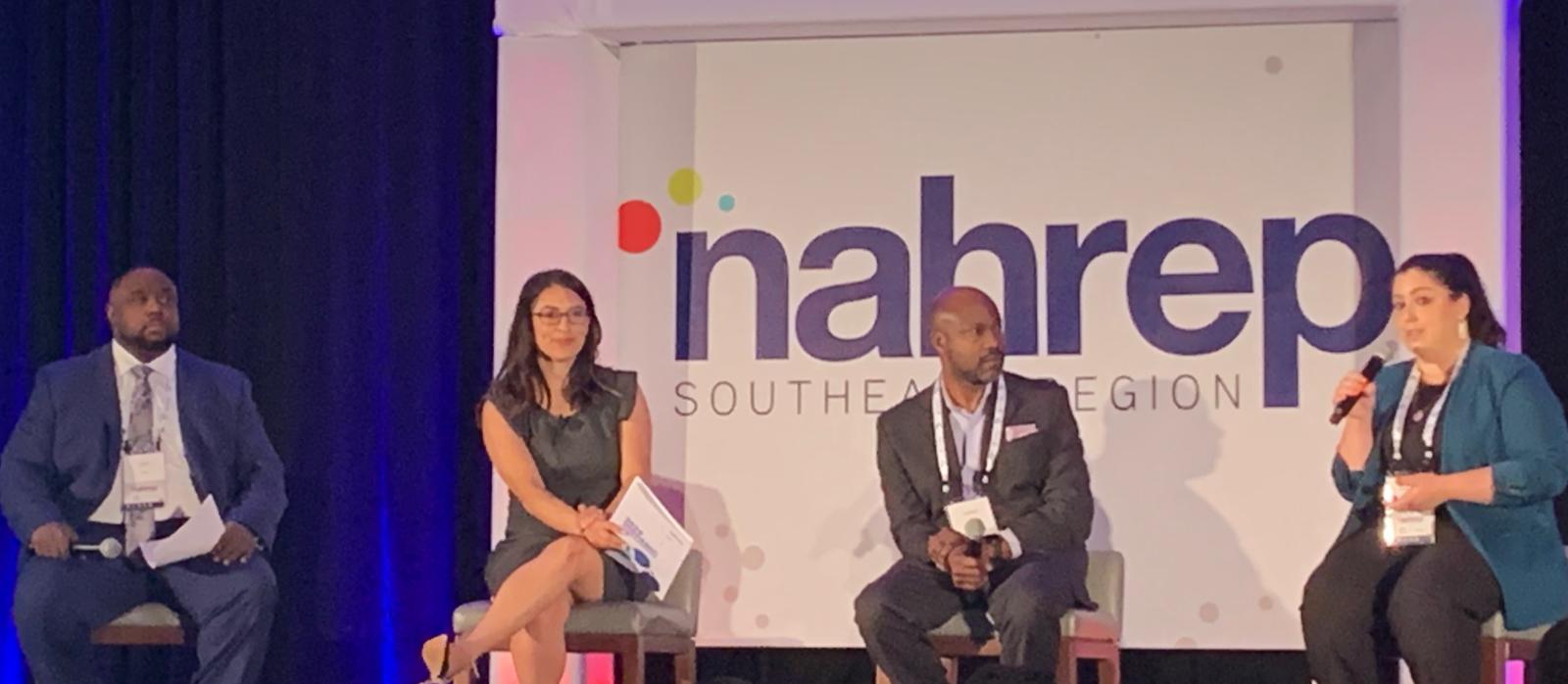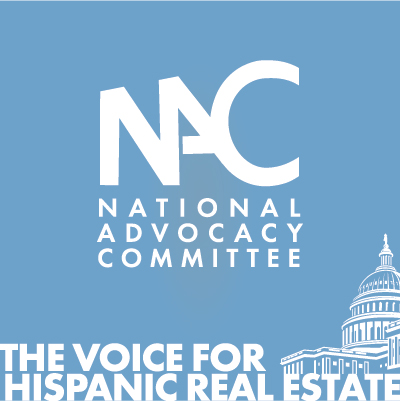NAC Blog: The Magic of NAHREP Energy
Celebrating NAHREP familia, cultura, politics, and grassroots action
July 15, 2021
Qué onda mi gente?!
After a year and a half of working from home, I finally saw many of you in Miami this week for our Southeast Regional Event. I almost can’t believe I got to hug, break bread, dance, and simply get inspired by each other’s energy and love for our beautiful Latino community. There truly is nothing like being able to feel the power of NAHREP energy in person. I’m so pumped for everything we’re about to accomplish.
In addition to all of that, we got our policy on. I am so proud of the policy conversations we had this week because we proved we’re about solutions, not just about talking about the problem. So here is our week in review, the NAC was in full force.

NAHREP and the Congressional Hispanic Caucus Talk Homeownership
On Monday, I had the privilege of presenting our State of Hispanic Homeownership Report highlights to the Congressional Hispanic Caucus (CHC). The CHC is a group of 38 members of Congress, both in the Senate and in the House of Representatives, all of whom are Latino. Congressman Raul Ruiz (CA-36) is the chair this year and leads the group. The reason caucuses are important is that when they speak as a group on behalf of a certain issue, it carries a lot more weight than when they speak individually. They also often vote as a bloc. It’s very similar to NAHREP. It is a lot more powerful when we speak as a united force than when we are a lone wolf.
Homeownership has historically not been a top 3 priority for the CHC. Given that Latino homeowners have 40 times the wealth of Latino renters, I urged these offices to take on homeownership as a priority. The fact is, Latinos will account for 70% of homeownership growth over the next 20 years, but only if we’re able to address the critical barriers we’re facing today, such as low housing inventory.
Advocacy takes time and change doesn’t happen overnight. As advocates, we have to be ok with that. In fact, real change happens gradually. They say that you first work on getting people to have a change of heart, then a change of mind, and then, that’s when things start changing and people begin taking action.

Southeast Regional Symposium in Miami
During the SE Regional event in Miami, we held a special morning symposium to discuss short term solutions to the housing inventory crisis. I don’t know about you but I am sick of talking about housing inventory as a problem and not talking about solutions. I was blown away by the direct action items I heard during the symposium. Here is what we talked about:
- We need to change the narrative around single-family zoning: That means redefining homeownership. The National Association of REALTORS® recently estimated that the nation is short about 6.8 million housing units. If we care about meeting the demand for housing that first-time homebuyers require, the primary way we’re going to achieve that is through townhomes and condos – plain and simple. So yes, that means that not every house is going to be sitting on an acre of land. We frankly don’t have enough land by employment centers for that. Today, the vast majority of residential land is zoned for single-family housing only. And no, getting rezoning doesn’t mean you have to build another home on your lot if you don’t want to. All it means is that you can.
- Utilizing public land for housing: In Miami, an organization called Miami Homes for All has been working on identifying all of the public land in Miami-Dade County and are pushing to have that land go to housing. They are also making sure that part of that development goes to owned occupied housing that first-time homeowners can afford, such as condos or townhomes. We can do that in other cities!!!
- Expanding access to Accessory Dwelling Units (ADU): ADUs are a big deal in California and they are now legal across the state. As a speaker told us on Tuesday, Latinos have been turning garages into small apartments for ages now. However, through the passage of legalizing ADUs across the nation, we can ensure that these units are done safely and add value to the property. Families that otherwise might not be able to afford the home would able to because of the rental income that could come with the property. Florida has been working on this issue as well and has reached roadblocks. Find out if there’s conversations around this in your state and speak to your local representatives about it!
- The Qualified Office Conversion Tax Credit: Congressman Jimmy Gomez from California is working on a bill to offer tax credit for unused commercial offices to be converted into housing. We caught wind of this legislation at the symposium. I’ll be spending some time reading this legislation to see if we should support it over the next few weeks. However, this is exactly how we should be looking at the problem – looking for opportunities and incentives to build more housing.
Lastly, I want to give a big shout-out to NAHREP Charlotte, particularly the amazing Government Affairs Director Marta Tataje. At the symposium, Charlotte City Planner Taiwo Jaiyeoba spoke on behalf of the city of Charlotte and their housing goals. Now, I want to underscore how big of a deal this is. Every city has a planner that is in charge of zoning and where housing is going to be built (among other things). This office is perhaps the most consequential in making a dent in housing production challenges. The City of Charlotte has been a trailblazer on this issue, establishing the Charlotte 2040 Plan that is more ambitious than many other cities we’ve seen.
Charlotte’s Government Affairs Director Marta Tataje saw how well this plan aligned with NAHREP’s policy priorities and took action. Over the last several months, the chapter wrote a formal letter in support of the plan, attended city council meetings, met with local press, and more. Taiwo Jayeoba announced during our event that NAHREP Charlotte led the way in garnering support for this plan, which has now passed the City Council. Charlotte will now be a test case for cities around the country and NAHREP was in the middle of it leading the way. So for any of you who think advocacy is too slow and you don’t see results, I suggest you reach out to Marta and the rest of the NAHREP Charlotte team so she can tell you otherwise.
For those of you in the Southwest Region, we will be meeting up again in Newport Beach on August 4. You won’t want to miss it.
Love you all mi gente!

About Noerena Limón
Noerena Limón is NAHREP’s Executive Vice President of Public Policy and Industry Relations. Noerena heads the organization’s policy and advocacy efforts on issues ranging from homeownership, housing inventory, credit access and immigration.
Prior to joining NAHREP, Noerena spent six years at the Consumer Financial Protection Bureau (CFPB) and served as a political appointee under President Obama in the White House Office of Political Affairs.



